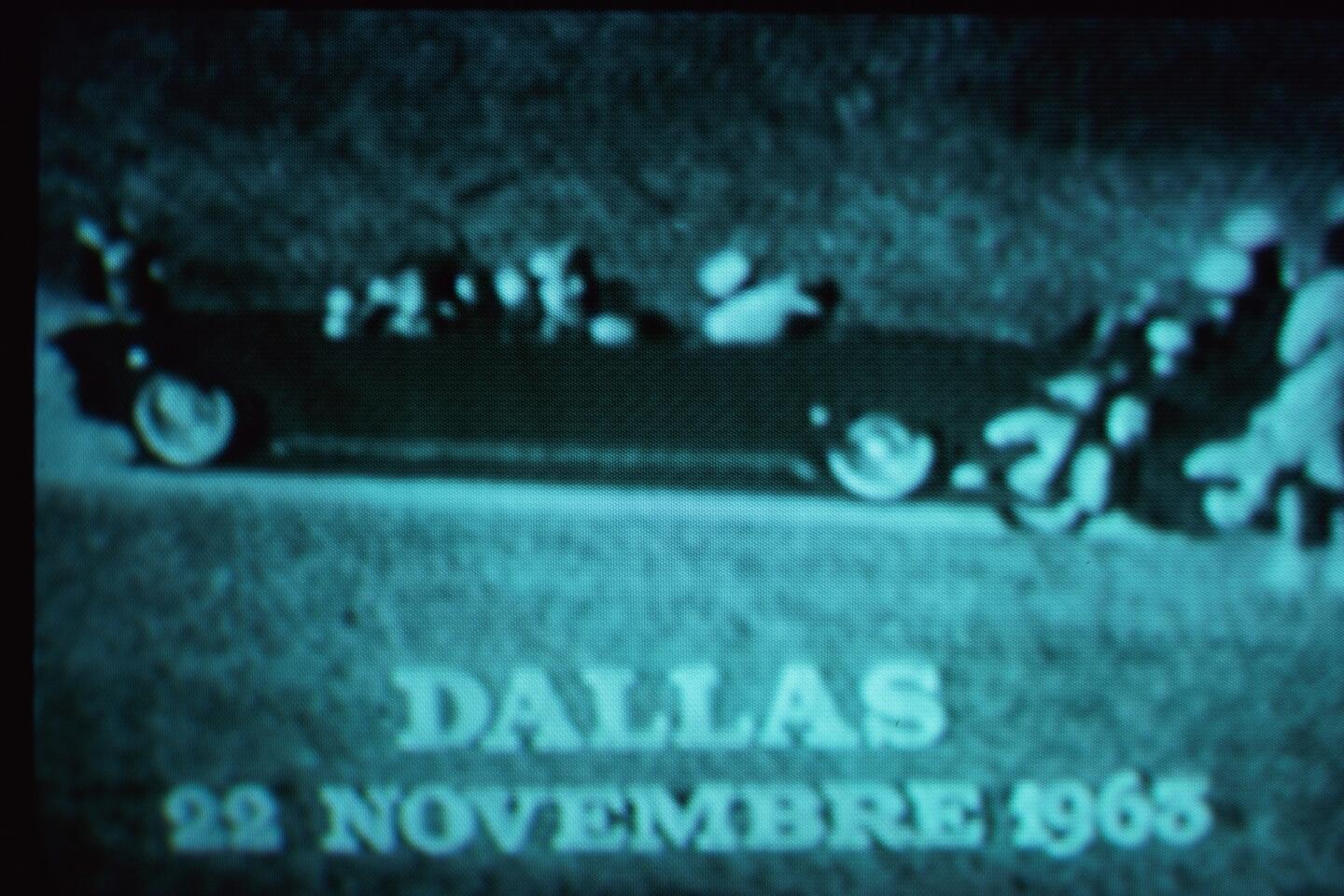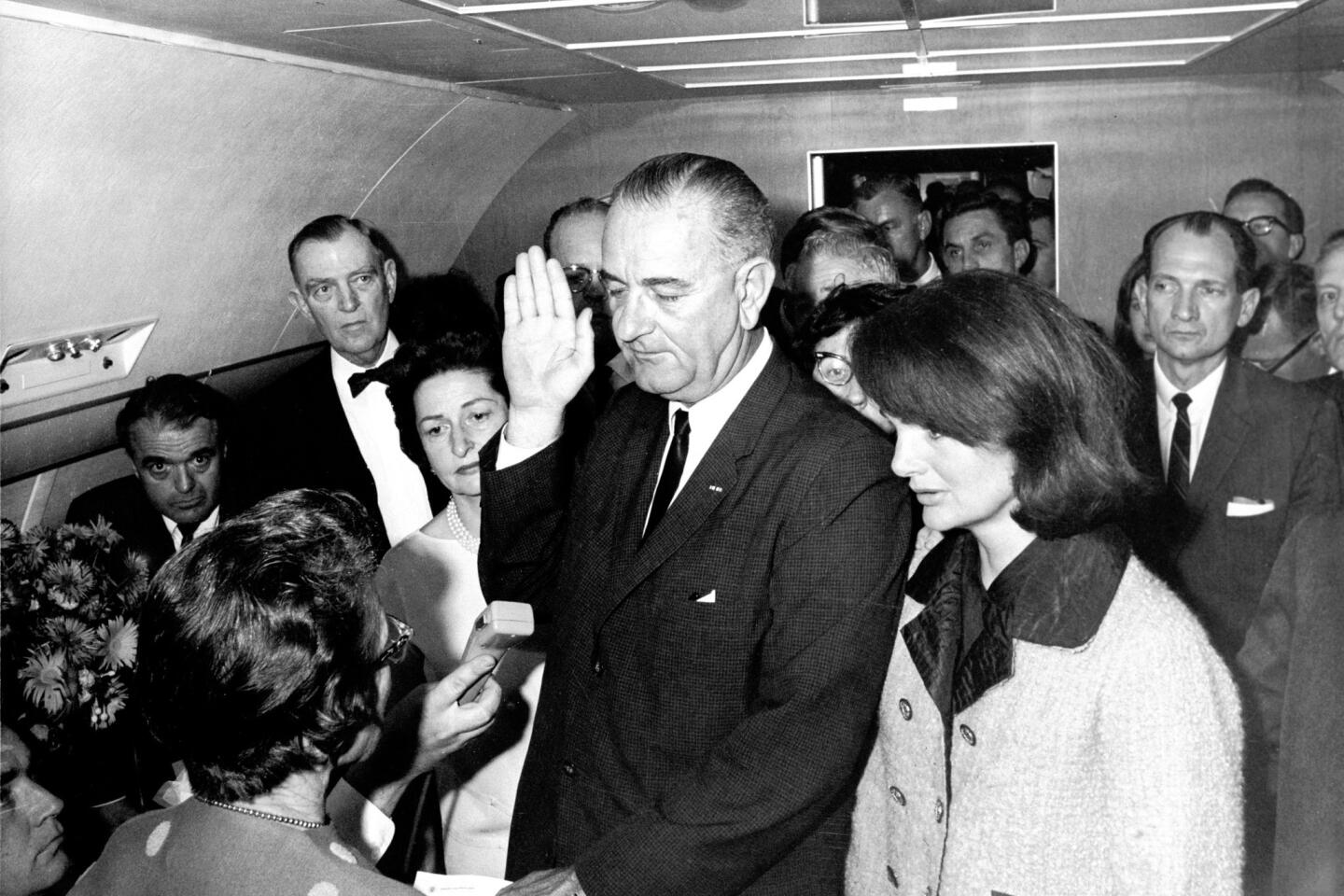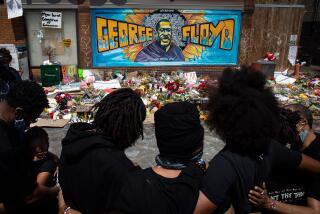Chris Matthews reflects on 50th anniversary of JFK’s assassination
- Share via
Chris Matthews has written two books about John F. Kennedy and Friday, on the 50th anniversary of the president’s assassination, he’s hosting two MSNBC specials, “JFK: The Day That Changed America” at 7 p.m. ET and “The Kennedy Brothers” at 8 p.m. ET. We spoke to him recently about the president’s legacy and why the anniversary of his untimely death has generated such a flurry of media attention.
Where were you on Nov. 22, 1963?
I was in college at Holy Cross up in Massachusetts. Everybody knows what they were doing. I was checking my mail after lunch and somebody told me Kennedy had been shot. I raced over to my world history class, which was a tough class. We were allowed three cuts a semester, and he said you can leave now without a cut. I went down to the dormitory. I knew there was TV there. I sat there and watched Cronkite the rest of the day.
Why do you think his death continues to resonate half a century later?
It was such a powerful thing in your life that you never really walked away from because he was a young president, he was good looking, he was on top of the world. he’d gotten through the Diem coup, we were going to get through Vietnam, we were going to get out of there. Maybe not get out of there but we were going to do alright over there. It didn’t look as hopeless as it had. He got his fight on civil rights, he had the moon program, the Peace Corps was starting, everything was sort of looking up. Then out of nowhere he’s dead. It’s still very hard to put together the Jack Kennedy right up until that moment with what happened after that.
PHOTOS: Behind the scenes of movies and TV
The way I was able to write my book, “Jack Kennedy: Elusive Hero,” was to blind myself to the idea of what happened to him. That moment just jarred ourselves out of everything we thought was American life. It was a totally different moment that happened. It was just a cosmic change in American reality the moment before and the moment after.
I know everybody talks about 9/11. But this is different, this is in the soul of America, this isn’t physical or mortal, this has to do with who we think we are. Sen. Patrick Moynihan of New York once said to me, “We’ve never gotten over it.” Then he looked at me and he said, “You haven’t gotten over it.” I took that as an Irish knighthood.
African Americans for years, they’d have Jack and Bobby and Dr. King on their walls. For a while there it was just Jack. Here’s this young rich guy, in June of ’63 he said civil rights were as old as the Scriptures and as American as the Constitution. No political leader had ever said that before.
Do you think the fact that there are still questions about the assassination has contributed to the ongoing Kennedy fixation?
I’m not that person. I think we know what happened. No one’s come up with any evidence that really supports an alternative theory. They have questions, of course; they always will. I think part of it is in Shakespeare, the grand protagonist must be felled or challenged by a great protagonist, it can’t be petty, it can’t be a John Hinckley. All of the assassins throughout history have basically been pretty pathetic people. So the reality is so much different than the dramatic notion we all carry with us that it must be an Iago figure. It can’t just be some guy disillusioned from the Soviet Union who carries a torch for Castro.
I’ve written about this in a number of books. Oswald had a very consistent left-wing fanaticism about him. It’s not hard to figure. I always say to people who have some big conspiracy theory: Just tell me this: How come he had that job at the book depository way before they had the parade route that day? I’ve been working around government a long time, so I don’t have this spooky notion of the government or the CIA. I don’t think some dark forces are at work.
Would you agree that it’s the moment that what people think of as “The Sixties” began?
Absolutely. The ‘60s -- s-i-x-t-i-e-s -- began when Kennedy was killed. That’s when the national downer began. I think it ended with Nixon’s resignation. Jack Kennedy lived throughout the “Mad Men” era, thin ties, short hair. You know, cocktails and Sinatra era. That was the world he knew. He never knew the phrase “The Sixties” in the way we knew it. He never knew the Beatles, I don’t think. That whole notion of the ‘60s, mop hair and folk music and Peter Paul and Mary, all that came later.
ALSO:
History relives the week of JFK’s assassination on Twitter
Review: PBS’ ‘American Experience: JFK’ is the Kennedy special to see
TV rewinds Kennedy assassination, 50 years later
Twitter: @MeredithBlake
More to Read
The complete guide to home viewing
Get Screen Gab for everything about the TV shows and streaming movies everyone’s talking about.
You may occasionally receive promotional content from the Los Angeles Times.









